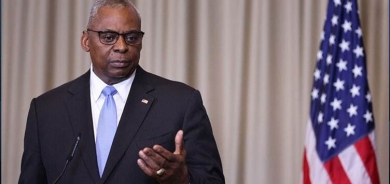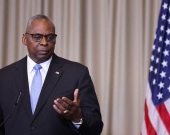Kurdistan demand punishment of those involved in "massacres" and say unamed parties are trying to repeat attacks

The statements came from a conference about the definition of genocide held in Erbil.
Former spokesman for the presidency of the Kurdistan Region Fouad Hussein said in a speech: "The definition of genocide in the world was [created] from a humanitarian aspect and not from a legal or political perspective. So some parties want to repeat the massacres committed against the Kurdish people, but we offer this definition for the world in order not to repeat it."
Minister of Martyrs and Anfal in the Kurdistan Regional Government (KRG) Aram Ahmed said that those who helped the former regime in committing such attacks should be punished.
According to the Iraqi and Kurdish governments, the Halabja attack is a genocide, and it was also classified as such by the Criminal High Court.
Kurds accuse German companies, and others, of assisting Saddam Hussein's regime by supplying him with internationally prohibited toxic gases which were later used to attack the town of Halabja in March 1988.
The conference kicked off in the presence of the Kurdistan Region's President Massoud Barzani, KRG ministers, members of the Kurdistan parliament, party officials and representatives of foreign countries in the Middle East region.
Also in attendance was a delegation from the Mediterranean Foundation, a global institution headquartered in Italy which is active in safeguarding peace and human rights.
Head of the Mediterranean Foundation delegation Senator de Krikurao said in a speech: "This country has a key and effective role in building a democratic and free state.
"I was a journalist and I saw wars and killings, but I have never seen such a massacre. On this basis I decided to work to define genocide to the world, especially Western countries."
Krikurao asked the Albanian defense minister to work on the introduction of the Kurdistan Region into NATO. He assured that he will work to inform the world about the genocide that the Kurds suffered from.
Barzani was honored with a peace award by the Mediterranean Foundation.
Iraqi fighter jets began flying over Halabja on the morning of March 16, 1988 and launched a five-hour chemical attack using a mixture of gas and other toxic materials, namely Tabun, Sarin and nerve gas.
The campaign was managed by Ali Hassan al-Majid, the cousin of Saddam Hussein. Majid was later known as "Chemical Ali" because of his violent methods.
Chemical Ali was sentenced to death on June 2007 after being convicted of involvement in a military campaign against the Kurds, called the Anfal campaign, that lasted from February to August 1988. Another death sentence was issued against him in December 2008 after he was convicted of the suppression of Shiite demonstrations after the 1991 Gulf War. A further rule was issued in March 2009 when he was convicted of killing and displacing Shiites in 1999.
Chemical Ali was executed on Jan 25, 2010 and the rope used to hang him was handed over yesterday by Baghdad to Halabja.














